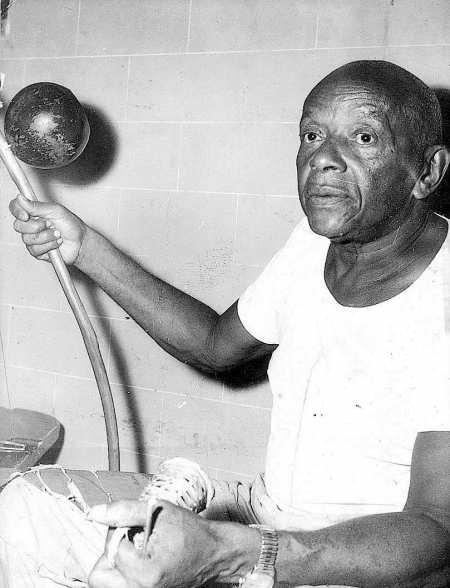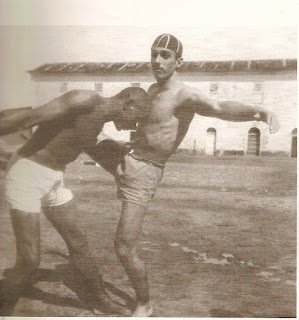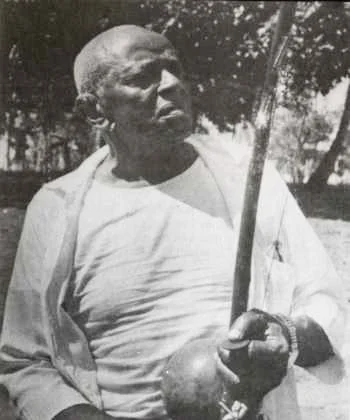Mestre Bimba
Creator of Capoeira Regional
Manuel dos Reis Machado, better known as Mestre Bimba, was born November 23, 1899, in Salvador da Bahia to Luís Cândido Machado and Maria Martinha do Bomfim. At the age of twelve, Bimba began practicing Capoeira from Nozinho Bento, better known as Bentinho, Captain of the Bahian Navigation Company.

Because of the intense persecution capoeiristas experienced at the time, Bimba believed capoeira was dying, becoming more folkloric and losing its original fighting foundation. He envisioned a renewed capoeira and he set out to transform it.
Drawing skills from the capoeira of that time and from Batuque, a martial art of which his father was a champion, Bimba created his capoeira. Because he couldn’t legally call this art form ‘capoeira’, he named his capoeira Luta Baiana Regional, Regional Fight of the Bay. In 1932, Mestre Bimba founded the first ever capoeira academy, Centro de Cultural Física Regional da Bahia. On June 9, 1937, Bimba officially registered his capoeira school with the Secretary of Education, Health and Public Service, becoming the first legitimate Capoeira Academy in Brazil. His capoeira then became known as Capoeira Regional.
Mestre Bimba with President Getúlio Vargas
On July 23, 1953, President Getúlio Vargas, impressed after watching a capoeira presentation by Mestre Bimba, called capoeira “Brazil’s only true national sport.” Mestre Bimba and his brand of capoeira quickly gained popularity. He also added Afro-Bahian folkloric dances Maculêlê, Puxada de Rede and Samba de Roda in cultural shows, presenting it to a wider audience. Today, these dances are commonplace in capoeira academies all over the world.
In 1973, Bimba made the controversial decision to move with his family away from his hometown of Salvador da Bahia to Goiâna, Goiás, Brazil. He believed the Bahian government didn’t recognize the worth of his work. Mestre Bimba died of a stroke on February 5, 1974, in Goiâna. In 1978, his remains were transferred from Goiânia to Salvador where they currently reside in the church of Santo Antonio Alem do Carmo.
Capoeira is practiced all over the world because of Bimba’s efforts. Reestablishing capoeira’s original values and techniques used among enslaved Black people, Bimba cleaned up capoeira’s image and restored honor to the artform. He used capoeira as an education tool, to prompt citizenship and social inclusion, helping students become upstanding members of society.
On June 12, 1996, The Federal University of Bahia (UFBA) honored Mestre Bimba with the title of Doctor Honorius Cause in recognition of his value as an educator, and a Bahian native who, with capoeira, contributed significantly to expanding the culture of Bahia worldwide.







